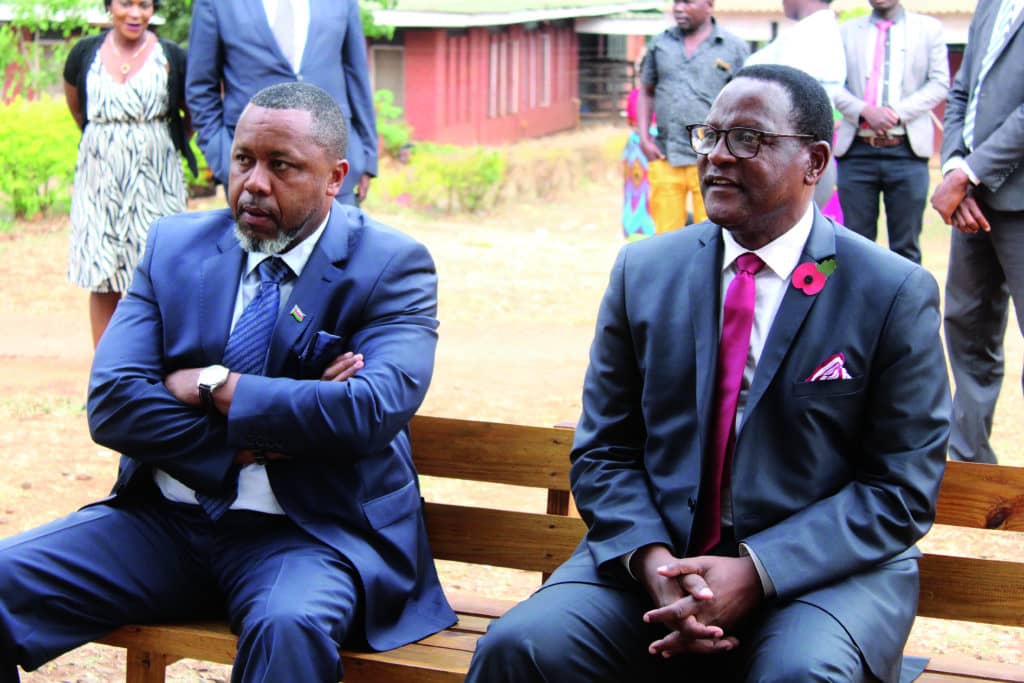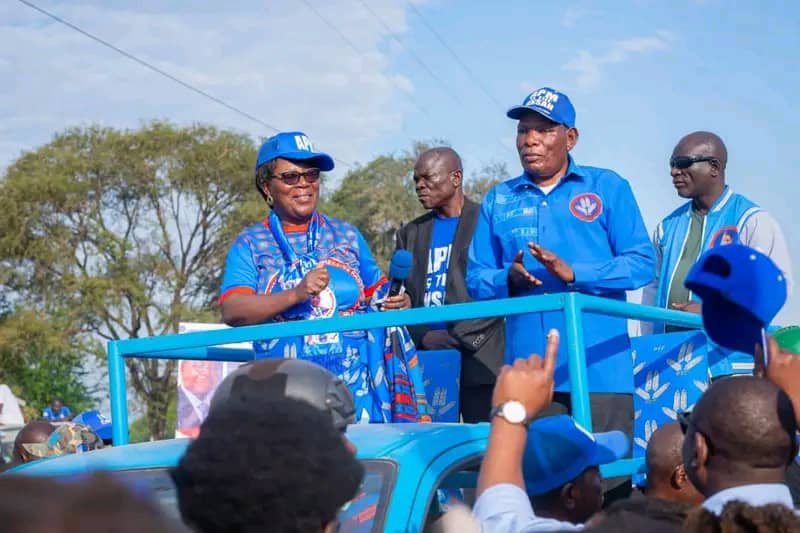By Burnett Munthali & Jones Gadama
In February 2020, Malawi’s High Court made history by nullifying the results of the May 2019 presidential election and ordering a fresh poll.
This monumental decision was later upheld by the Malawi Supreme Court of Appeal, cementing its place as one of the most consequential legal rulings in the country’s democratic history.
The case was unprecedented in Africa, as it was only the second time a court had annulled a presidential election on the continent.
It also led to another historic first: the rerun was won by an opposition candidate, reshaping Malawi’s political landscape and sparking global attention.
Legal scholars have noted that the judgments broke new ground in Malawi’s electoral jurisprudence, influencing how electoral disputes might be handled in the future.
However, the rulings also split opinion within legal and political circles, with some hailing them as a triumph for democracy and others questioning the robustness of the court’s reasoning.
A key point of contention was the court’s handling of the burden and standard of proof in electoral disputes, which some critics argued set a precedent that could lower the threshold for challenging election outcomes.
The interpretation of “majority” to mean 50% + 1 was another groundbreaking element of the decision, fundamentally altering Malawi’s electoral system and requiring future presidential winners to secure an absolute majority.
The nullification also raised complex transitional issues, including questions about governance during the period between the annulled election and the fresh polls.
While the outcome of the litigation attracted international praise for strengthening democratic accountability, scholars such as Mwiza Jo Nkhata, Anganile Willie Mwenifumbo, and Alfred Majamanda have argued that the reasoning behind the judgments was not entirely persuasive.
This critical debate has left an enduring question for Malawi: was the 2019 election nullification a bold act of judicial independence safeguarding democracy, or did it risk being seen as a judicial coup d’état with far-reaching political consequences?
The landmark nullification of Malawi’s 2019 presidential election unquestionably marked a significant moment in the nation’s democratic journey, yet it would be remiss not to critically examine the judiciary’s role in this process.
While celebrated by many as a courageous assertion of judicial independence, a closer scrutiny reveals several troubling shortcomings and missteps by the Malawi judiciary that cast a shadow over the legitimacy and prudence of the ruling.
In fact, the decision risks setting a precarious precedent that could undermine the very democratic stability it purportedly sought to protect.
To begin with, the judiciary’s approach to the burden and standard of proof in electoral disputes was deeply problematic. Traditionally, electoral petitions demand a high threshold of evidence given the profound political implications of overturning an election.
The courts in Malawi, however, appeared to adopt a notably relaxed standard, arguably lowering the evidentiary bar to a point that could encourage frivolous or politically motivated challenges in future elections.
This departure from rigorous judicial scrutiny raises serious questions about the courts’ commitment to impartiality and legal precision.
The High Court’s willingness to nullify the election based on what some critics have described as “inconclusive or insufficiently substantiated irregularities” is particularly concerning.
Electoral processes are inherently complex and often imperfect; minor procedural errors or administrative lapses should not be conflated with systemic fraud or manipulation that would justify the annulment of a national election.
By failing to clearly delineate between harmless irregularities and material violations capable of altering the election outcome, the court blurred important legal distinctions, thereby injecting uncertainty into Malawi’s electoral jurisprudence.
Moreover, the judiciary’s interpretation of “majority” as requiring an absolute threshold of 50% + 1 votes fundamentally transformed Malawi’s electoral system without legislative backing. While this interpretation aligns with democratic principles favoring absolute majorities, it effectively rewrote electoral rules through judicial fiat rather than through the democratic process of parliamentary debate and statutory amendment.
This judicial overreach usurped the role of the legislature and disrupted the separation of powers, raising the specter of judicial activism run amok.
This bold reinterpretation also overlooked the electoral context and historical practices in Malawi, where a simple plurality had previously sufficed for presidential victories. By imposing a new, more stringent standard retroactively, the courts not only invalidated the 2019 election results but also introduced legal uncertainty for future elections.
Candidates, political parties, and voters alike were left navigating a recalibrated electoral landscape without clear statutory guidance, breeding confusion and potential unrest.
The transitional governance issues that arose in the wake of the nullification further underscore the judiciary’s failure to anticipate and manage the real-world consequences of its ruling.
The decision did not adequately address the question of who would govern during the interim period between the annulled election and the fresh poll.
This oversight plunged Malawi into a constitutional grey area, where uncertainty about executive authority and political legitimacy threatened stability and governance continuity.
The judiciary’s narrow focus on the legal technicalities of the electoral process neglected the broader imperative of safeguarding democratic governance and public order.
Adding to these procedural and interpretative faults, the judiciary’s decision-making process itself revealed troubling signs of inconsistency and opacity.
Some observers noted that the courts appeared divided, with dissenting opinions highlighting fundamental disagreements over the evidentiary basis and legal reasoning.
The absence of a clear, unanimous judicial rationale diminished the ruling’s authority and fueled perceptions of partisanship.
Transparency in judicial deliberations is critical for maintaining public trust, especially in politically sensitive matters such as election disputes.
By failing to provide a fully convincing and coherent justification, the courts inadvertently sowed seeds of skepticism and polarization.
Critics have also pointed to the broader political implications of the judiciary’s intervention.
The nullification effectively overturned the choice of millions of voters, which some have framed as an act verging on judicial coup d’état rather than judicial oversight.
While courts must hold elections to account, there remains a delicate balance between upholding electoral integrity and respecting the democratic will.
The Malawi judiciary, in this case, arguably tipped the scales too far towards judicial intervention, potentially eroding the legitimacy of the entire electoral process.
This intervention also set a potentially dangerous precedent in the region.
Other African countries grappling with contested elections might look to Malawi’s experience and attempt to leverage the judiciary as a political tool rather than a neutral arbiter. If courts are seen as willing to annul elections on tenuous grounds, the risk of judicialization of politics increases, destabilizing democracies rather than strengthening them.
Lastly, the judiciary’s failure to engage meaningfully with the socio-political realities underlying the electoral dispute weakened the broader democratic project.
Malawi’s political environment is characterized by deep divisions and heightened tensions.
The courts’ narrow legalistic focus missed an opportunity to promote reconciliation and political dialogue.
Instead, the ruling exacerbated existing fissures, polarizing the electorate and fostering uncertainty about the future of democratic governance.
While Malawi’s judiciary deserves commendation for asserting its independence and willingness to hold electoral processes to account, the 2019 presidential election nullification exposes significant judicial shortcomings.
These include lowering the burden of proof, judicial overreach in redefining electoral rules, failure to manage transitional governance, inconsistent reasoning, opacity, and an underestimation of the ruling’s political consequences. Far from being an unambiguous triumph for democracy, the decision raises profound questions about judicial prudence and institutional balance.
Moving forward, Malawi’s courts must strive to uphold electoral justice without compromising democratic stability, ensuring that future interventions are grounded in robust evidence, clear legal principles, and an appreciation of their far-reaching political impact.
Only then can the judiciary truly serve as a guardian—rather than a disruptor—of Malawi’s democratic aspirations.




